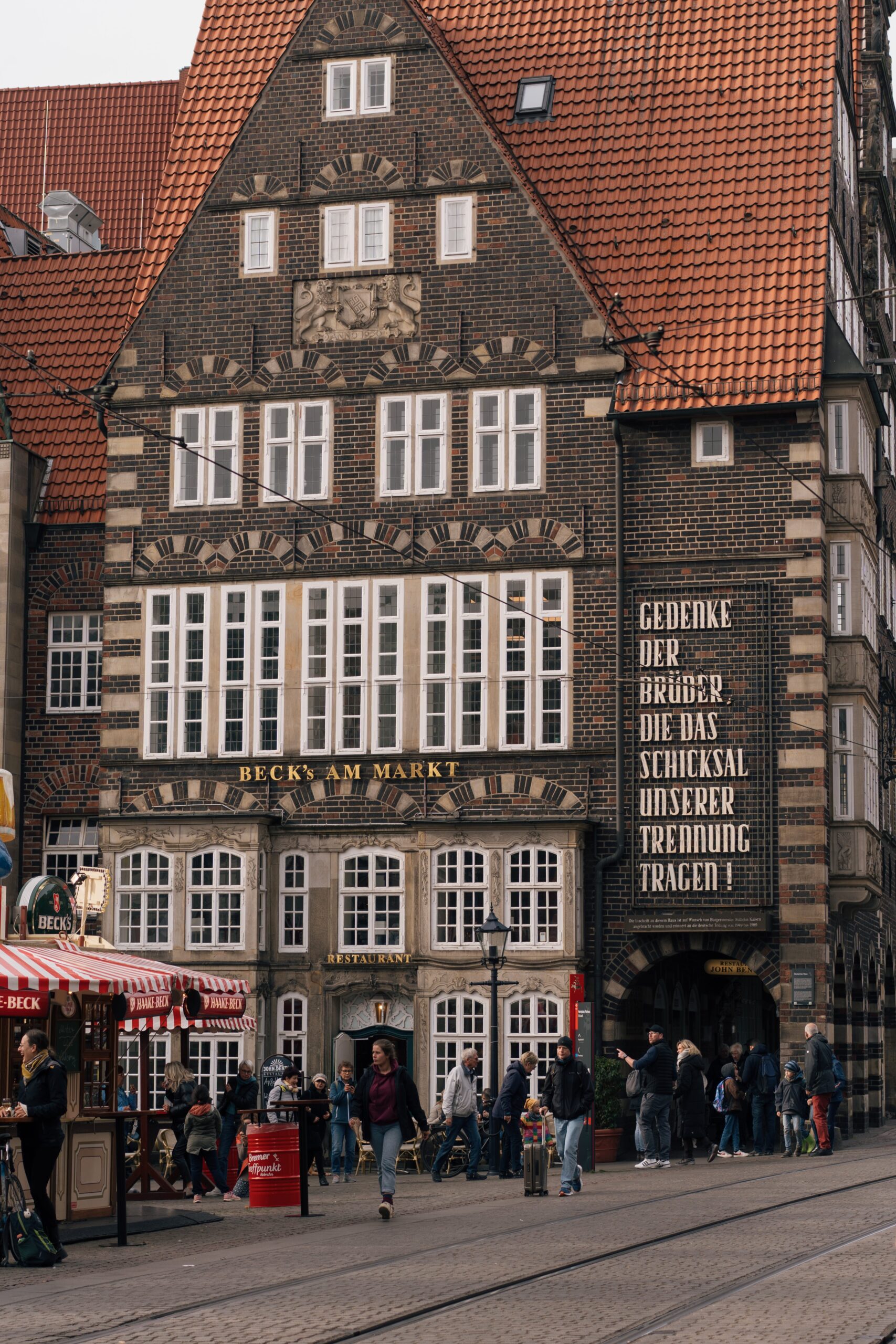
© Universität Bremen
Teaching is challenging in times of a pandemic. At the university, this is recognized by the Berninghausen Prize. Therefore, this year, there is not only the traditional student prize. Two teaching staff also receive an award in the category “excellent teaching under COVID-19 circumstances”.
The longtime university music director Dr. Susanne Gläß and the political scholar Sebastian Möller are each awarded a prize in the category “excellent teaching under COVID-19 circumstances”. The traditional student prize is awarded to the didactics of mathematics professor Maike Vollstedt. The three awards are endowed with 2,000 euros each. At 6 p.m. on Wednesday, December 2, 2020, the traditional award ceremony will be held as a public online event. Anyone interested in participating is most welcome. A total of 135 proposals were submitted. A selection committee, consisting of teaching staff, other university employees, and students, reviewed the proposals and nominated the award winners who were involved in the following projects and topics:
“Ravel’s Boléro”: An Orchestra Goes Online
What do you do with the already planned orchestra project in times of corona? This was the challenge faced by Susanne Gläß in her teaching project last summer semester. In the end, she managed to establish the project “Ravel’s Boléro” and thus create an alternative for live orchestra playing. “It is possible to hold a lecture online”, she says. “But playing digitally in an orchestra in real time is technically impossible so far.” Nonetheless, the longtime university music director came up with an idea for a digital alternative that could almost make up for the missing coordinated listening usually needed when playing live in an orchestra: She developed an alternative method in which the orchestral parts were recorded individually one after the other and then assembled on the computer immediately after each individual recording. The recordings were made by the orchestra members individually at home. This was accompanied by weekly video conferences where musical composition and technical recording problems were discussed. Gläß received technical support from a professional team: Alumnus Gerd Anders, bugler of the orchestra and sound technician by profession, Simon Knobbe, trumpet player of the orchestra and freshly graduated in Master of Electrical Engineering, and for video editing, Jan-Hendrik von Stemm, administrative staff of the university music department. The result was presented in the St. Stephani culture church in the period from June 27 until July 18, 2020 at 21 different occasions. The individually recorded tracks were played back from 34 loudspeakers. In compliance with the hygienic regulations, the audience could walk between these speakers and distinguish the individual instruments that the human ear would not be able to filter out during normal orchestral performances. The 50 orchestra members benefited in many ways from the project: They were able to get acquainted with new forms of musical production, could improve their own performance by repeating their recording up to ten times, maintain intensive contact with the rest of the group, and enjoy the creative experience. Additionally, a video sound collage was produced and uploaded on YouTube. The jury was thoroughly impressed by this project, which would not have taken place without COVID-19.
Port Blog and Learning Videos instead of Excursions
“Key to the World: Bremen’s Ports in the Global, Political Economy”: This is the seminar title of an interdisciplinary exploration tour through the fascinating world of ports, which the political scholar Sebastian Möller had to convert to a digital port seminar in the summer semester due to the corona pandemic. “Unfortunately, the pandemic suddenly put an end to my plans for excursions and field trips to the ports”, he remembers. “In order to still encourage interest in empirical questions, I have used learning videos, recorded interviews with port stakeholders, and the port blog.” An introductory post by him was published on the blog before each course session. Students then created their own short contributions or podcasts on this topic, drawing on various empirical data and, in some cases, conducting their own interviews. In this way, students were able to engage in a research-based learning process even in times of the pandemic and did not just sit in Zoom meetings all the time. To support this, the port blog provided an extensive list of research data, links, and literature, and animated the students to participate by means of photo quizzes and port news. “My students have created some very intriguing blog posts and podcasts, and I have already learned a great deal from my students. I would have much preferred a face-to-face port seminar though”, says Möller. According to the jury, the students especially praised Sebastian Möller’s flexible and very successful re-organization and planning of the seminar under COVID-19 conditions. Particular emphasis is placed on the port blog, which is a lasting testimony to the students’ learning success and has also encouraged other interested parties to visit and explore. Some of the students’ contributions will soon be published as working papers. Sebastian Möller’s commitment went far beyond of what is required of a tutor.
Student Prize for “Thinking and Acting Mathematically”
“Thinking and Acting Mathematically” is the name of the seminar, for which Professor Maike Vollstedt receives the student prize. The module includes didactic aspects of current research areas in mathematics such as the psychology of learning mathematics. In the seminar, Vollstedt and her students looked beyond their own horizons. She established a link to topics in educational psychology. The goal was for her students to continue to be able to experience what constitutes science and which activities researchers pursue. The original concept was developed by a colleague from the computer sciences, Professor Susanne Maaß, and then transferred and adapted to the needs of the field of didactics of mathematics by Maike Vollstedt. The concept includes the exploration of a topic area by the students, as well as the organization and realization of a student conference, at which the students’ own findings were presented. According to the jury, this project strongly encouraged independent, creative, and critical thinking. The students emphasized Maike Vollstedt’s commitment in their statement. She distinguished herself by a high degree of responsiveness, so that intensive consultation and support were possible at all times.
Thanks to Student
“The student prize is very special to me, since being a specialist in didactics, excellent teaching is naturally very close to my heart,” says Vollstedt. “My heartfelt thanks go to the students for this great course: The conference seminar could only happen because of their extremely dedicated commitment, which was by no means something to be taken for granted.”
About the Berninghausen Prize
Every year, the University of Bremen and the “unifreunde” friends of the University of Bremen and Jacobs University award the Berninghausen Prize. The prize, which was established by the family Berninghausen in 1991, honors special achievements in university teaching. Endowed with 6,000 euros, the prize can be awarded in several categories. All members of the university can nominate members of the teaching faculty for the prize, whereby in the category “student prize”, only the students are allowed to do so.
Further Information can be found here:
https://www.uni-bremen.de/en/preis-fuer-gute-lehre
https://up2date.uni-bremen.de/en/teaching-studies/digital-port-seminar
https://up2date.uni-bremen.de/en/university-society/a-special-semester-project
http://www.math.uni-bremen.de/didaktik/tagungen/psychmath2020/index.html
Press release by Meike Mossig, Universität Bremen






